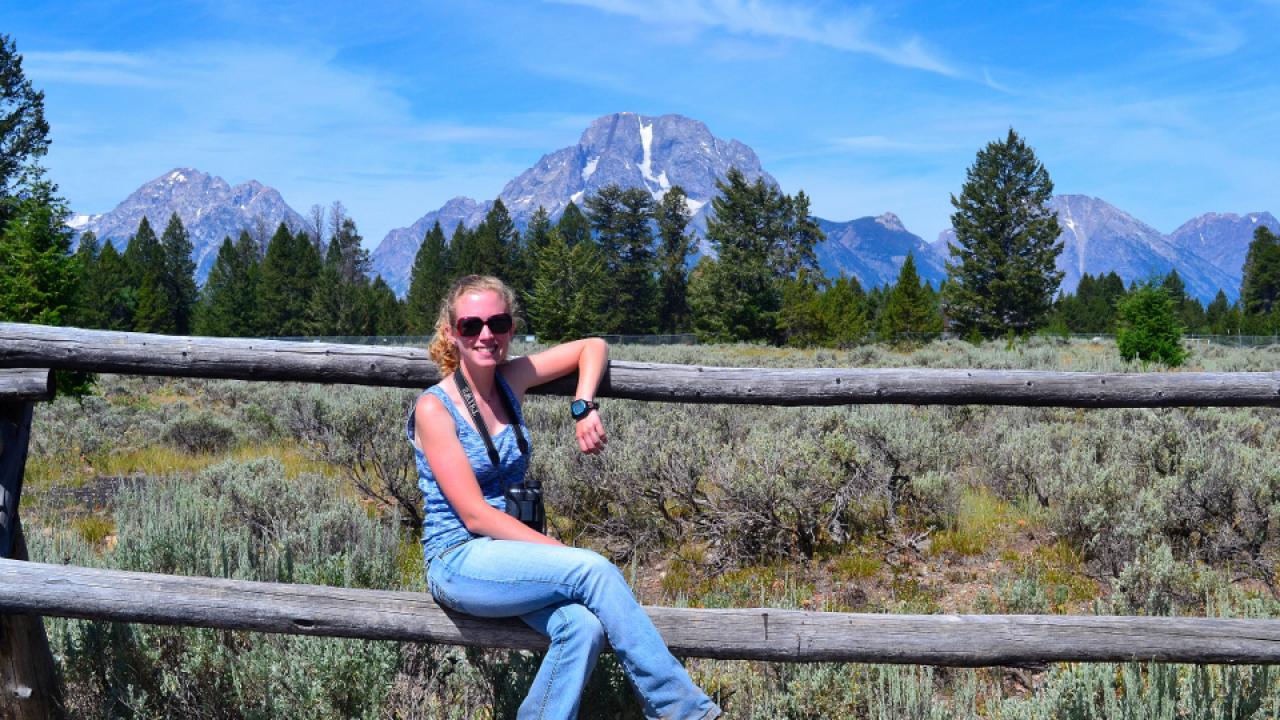
Elizabeth Schultz
What matters to Elizabeth?
Quick Summary
- Inspiring undergrad students to pursue research.
Elizabeth Schultz, a doctoral candidate in the Animal Behavior Graduate Group, is a veteran when it comes to research. She was introduced to it during high school and has continued conducting research ever since. Schultz studied physiology, behavior and ecology of songbirds during her undergraduate career at Indiana University, where she worked on her own research projects and interacted with graduate students. “Working in this environment allowed me to make a very informed decision about how much I would enjoy life as a graduate student, and what sorts of subjects I’d be interested in studying,” said Schultz.
Schultz currently studies the immune function in regards to survival and reproduction in a songbird, the red crossbill, whose name quite literally describes the crossed tips of their bills used to extract seeds from conifer cones. She splits her time between a lab on campus and Grand Teton National Park in Wyoming, where she collaborates with the University of Wyoming.
A National Science Foundation Graduate Research Fellowship has enabled Schultz to collect data in the field. Grants from Sigma Xi, the American Ornithologists’ Union, the Society of Integrative and Comparative Biology, and the University of Wyoming and National Park Service have also helped with her research.
Schultz has relished her time at UC Davis. “Getting my Ph.D. at a university where research is heavily emphasized has enabled me to amass a significant number of technical and professional skills that will help me be successful in my future career path.”
To those students who are inspired to go to graduate school, Schultz gives the advice of starting research as early as possible, in order “to determine whether or not graduate school is a good fit for you, and if so, to gain an advantage over others who might not have that research experience.” During her early research days in high school and undergraduate study, Schultz was mentored by older students, who took considerable time with her to help her find her own personal interests and goals. “I would like to do the same for others,” said Schultz, “to continue to share what I’ve learned with the incredibly talented undergraduate students I’ve been lucky enough to recruit.”
Schultz hopes to continue her career after graduating, pursuing research that will have broader applications to conservation and global/ecological health issues. Until then, she will continue doing what she loves: running, hiking, cooking, reading, being outdoors, and researching – in the field or in the lab.
For more information on Elizabeth Schultz’s research, visit her website.
Photo: Schultz takes a break in Grand Teton National Park. Credit: Marine Drouilly and Sarah Knox.
